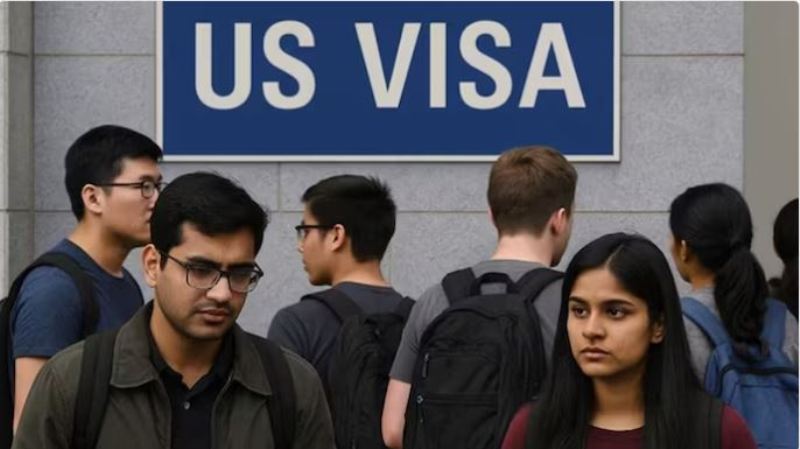New surcharge to apply from 2026; refund possible under strict conditions
Washington D.C.: The United States has introduced a new $250 Visa Integrity Fee as part of the One Big Beautiful Bill Act, signed into law by President Donald Trump on July 4. The fee will come into effect from 2026 and will apply to most non-immigrant visa applicants.
This new charge is in addition to existing visa fees and will be adjusted annually based on inflation. It is meant to act like a security deposit to promote compliance with US immigration laws.
Who will pay the fee?
The $250 fee will apply to nearly all non-immigrant visa categories, including:
B-1/B-2 (tourist/business)
F/M (student)
H-1B (work)
J (exchange visitor)
Only diplomatic visas (categories A and G) are exempt.
The Department of Homeland Security (DHS) will collect the fee at the time of visa issuance.
New visa costs for Indian applicants
Currently, a US B-1/B-2 visa for Indian citizens costs $185 (₹15,855). With the addition of the:
$250 Visa Integrity Fee
$24 I-94 fee
$13 ESTA fee
The total cost will rise to around $472 (₹40,456)—more than double the present amount.
Can the fee be refunded?
Yes, but only under strict conditions:
If the visa holder leaves the US within 5 days of their visa expiring and does not apply for an extension or change of status, or
If the visa holder successfully becomes a US permanent resident before their I-94 (departure record) expires.
The refund is not automatic. Applicants must submit proof of timely departure or status change, such as:
Exit records
Adjustment of status documents
If these are not provided, the fee will go to the US Treasury’s general fund.
Additional charges
The Act also introduces:
A $13 ESTA fee for travellers under the Visa Waiver Programme
A $30 EVUS fee for Chinese nationals holding 10-year B-1/B-2 visas
These fees are non-refundable and cannot be waived.
Policy goals and concerns
The Trump administration claims the fee will help reduce visa overstays and ensure greater compliance with immigration rules.
However, critics argue it may:
Burden lawful travellers, especially from developing nations
Limit student exchange and cultural visits
Create confusion due to complex refund conditions
The US State Department is expected to issue detailed guidelines on how refunds can be claimed.
Until then, visa applicants are advised to plan travel well in advance and be aware of the new costs and conditions.
Tags:
#USVisa2026 #VisaIntegrityFee #TrumpImmigrationPolicy #USImmigrationChanges #NonImmigrantVisa #B1Visa #F1Visa #H1BUpdate #USVisaFees #IndianTravellers #USStudentVisa #ESTAFee #USImmigrationNews #VisaRefundPolicy #Trump2025










